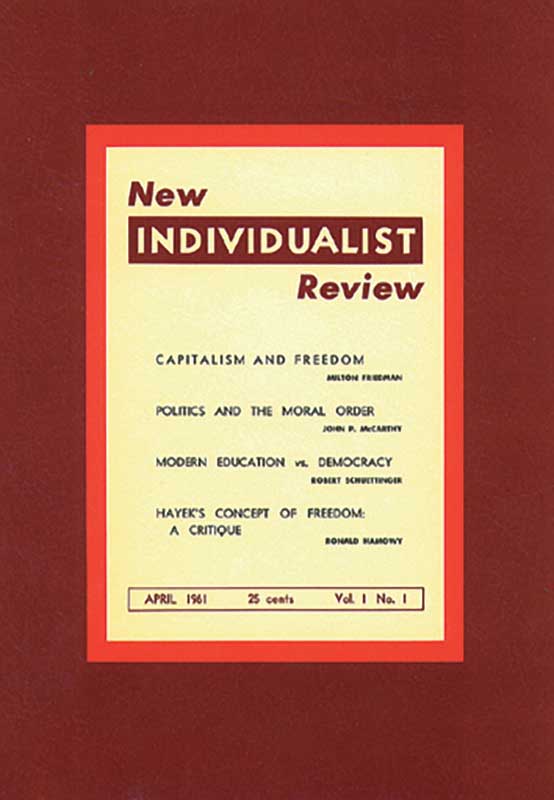
New Individualist Review
- Milton Friedman (author)
- Ronald Hamowy (author)
- Friedrich August von Hayek (author)
- Ralph Raico (author)
- Murray N. Rothbard (author)
- Milton Friedman (introduction)
- Ralph Raico (editor)
Initially sponsored by the University of Chicago Chapter of the Intercollegiate Society of Individualists, the New Individualist Review was more than the usual “campus magazine.” It declared itself “founded in a commitment to human liberty.” Between 1961 and 1968, seventeen issues were published which attracted a national audience of readers.
Show more
Its contributors spanned the libertarian-conservative spectrum, from F. A. Hayek and Ludwig von Mises to Richard M. Weaver and William F. Buckley, Jr. The associate editors were John P. McCarthy, Robert Schuettinger, and John Weicher. The book review editor was Ronald Hamowy. Other authors included Milton Friedman, Murray N. Rothbard, F.A. Hayek, Russell Kirk, Eugene Miller, Wilhelm Roepke, Harry Elmer Barnes, Sam Peltzman, George Stigler, Benjamin Rogge, Ludwig von Mises, Bruno Leoni, Israel Kirzner, Richard Weaver, Yale Brozen, Gordon Tullock, Warren Nutter, W.H. Hutt, E.G. West, Henry Hazlitt, Arthur A. Ekirch, Ljubo Sirc, and Armen Alchian.
Key Quotes
Socialism & Interventionism
Liberty
Economics
The State